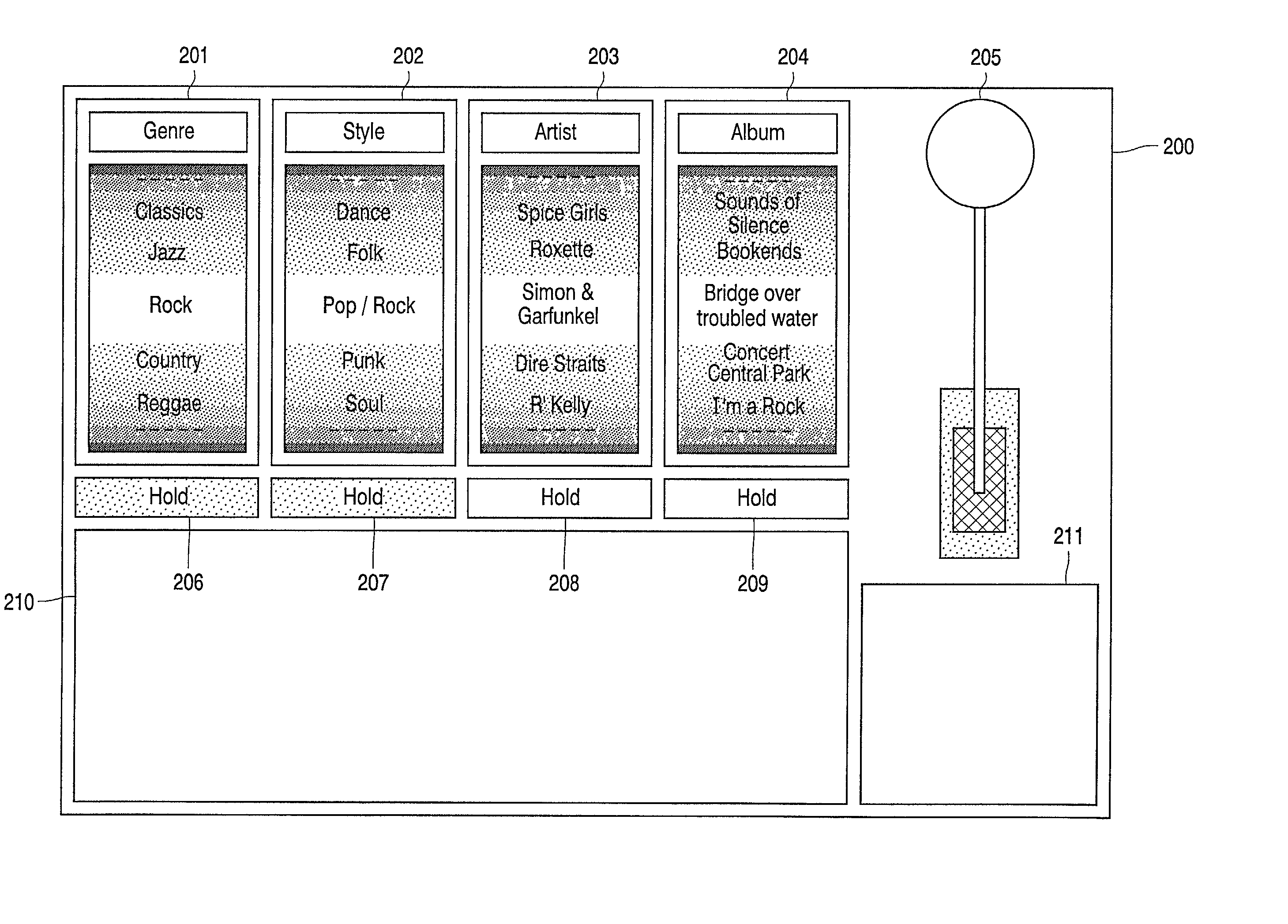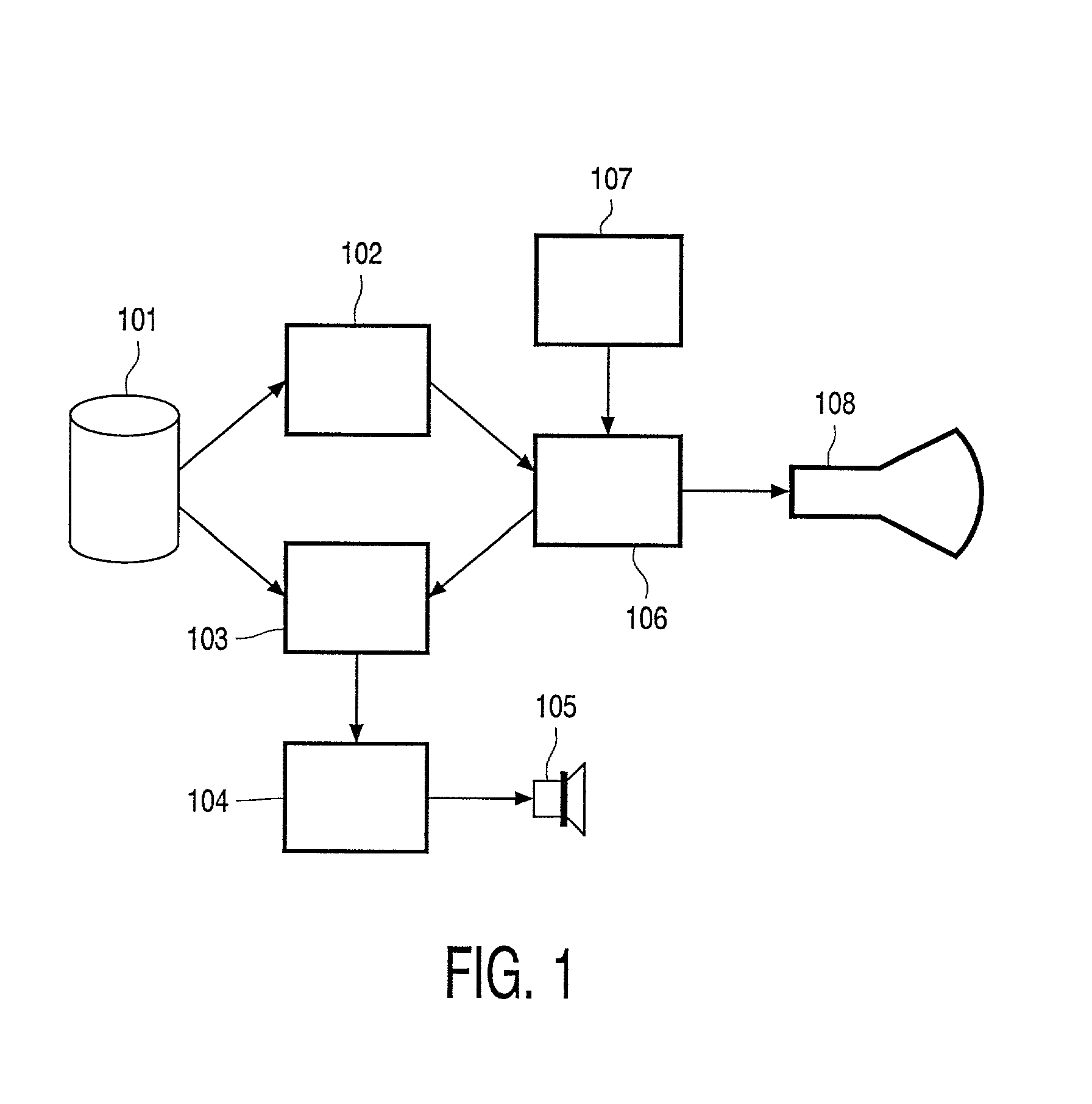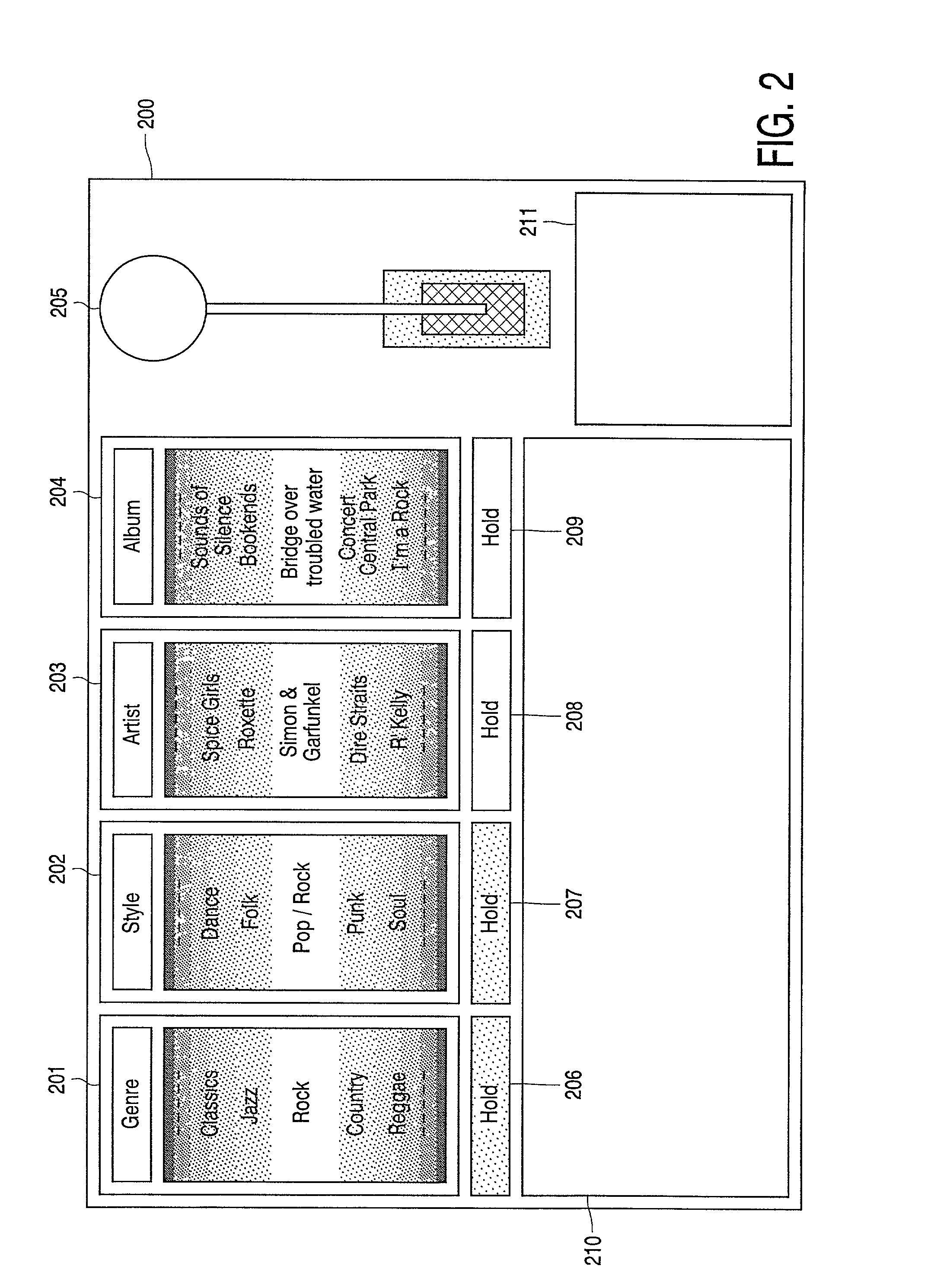[0005] It is an object of the invention to provide a system and method of the type defined in the opening
paragraph which enables a user to easily explore the collection of information units. To that end, the invention provides a system wherein the system comprises random selection means for randomly selecting a unit for presentation whose attribute value meets a criterion. In this way it is achieved that the user need not precisely specify which information he wants to be presented with, because the system makes suggestions by selecting more or less arbitrary units from the collection. The degree of randomness can be limited by requiring that selected units meet one or more criteria with respect to their attribute values. Such criteria may be entered by the user, or generated by the system as a result of, for example,
habit watching, which is a well-known technique for inferring the user's preferences from his earlier selections. An example of an attribute is the `genre` of a music file, and a criterion with respect to this attribute could be `genre is jazz`. If this criterion were entered, the system according to the invention would randomly select a song whose genre attribute value corresponds to `jazz`. After presentation of this song, the system would select another arbitrary jazz song, without requiring any user action. In this way the user can explore the collection with minimal effort.
[0006] An advantageous embodiment of the system according to the invention is characterized by said system comprising user-operable hold means for holding an attribute value of a currently selected unit as a criterion for subsequent selections. This provides a very user-friendly way of restricting the set of information units from which the random selection means may select a unit for presentation. The user need only indicate that he wants to hold the attribute value of the currently selected unit constant for subsequent selections. For example, if the currently selected unit happens to be a jazz song, the user can easily control the random selection means to select only music files whose genre attribute values correspond to jazz. This can be achieved by a simple operation, e.g. by pressing a button, and does not require explicit indication of the desired attribute value, since this attribute value is uniquely determined by the currently selected unit.
[0007] An embodiment of the system according to the invention is characterized by said attribute value being defined with respect to a first attribute, said attribute means being adapted to determine a set of valid attribute values for a further attribute in dependence on said criterion. In general, information units will be described by multiple attributes, some of them being subordinate to other attributes. For example, in addition to the genre attribute, a `style` attribute, i.e. a sub-genre, may be defined, whose set of valid attribute values depends on the currently selected value of the genre attribute. If the currently selected value for the `genre` attribute is `jazz`, the
resultant set of valid values of the `style` attribute may include values such as `bebop`, `mainstream`, `swing`, etc. This helps the user in getting an overview of valid attribute values for the current criteria, and inputting further criteria for said further attribute.
[0008] An embodiment of the system according to the invention is characterized by the system further comprising user-operable skip means for controlling the random selection means to abort the presentation of the currently selected unit and to skip to a randomly selected alternative unit whose attribute value meets said criterion. In this way it is achieved that if the user does not like a currently selected unit, he can easily stop its presentation and cause the random selection means to choose an alternative unit which also meets the current criteria. The user is thus able to quickly explore the collection, without explicitly selecting units for presentation. He need only operate the skip means, which may take the form of a simple button, to select the alternative unit.
[0010] An advantageous embodiment of the system according to the invention is characterized by the attribute means being adapted to determine a distance between a pair of attribute values, the random selection means being capable of selecting a unit from units whose attribute values have a relatively
large distance to attribute values of an earlier selected unit. The units suggested by the system thus differ as much as possible, or at least significantly, from earlier suggestions. In this way it is achieved that the user gets a quick overview of the various kinds of units in the collection, with little chance of being faced with long series of similar units. Hence, the exploration of the collection becomes more surprising and attractive.
 Login to View More
Login to View More  Login to View More
Login to View More 


